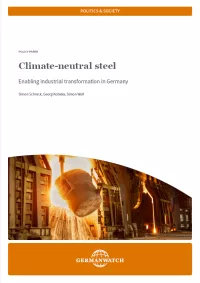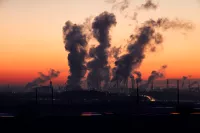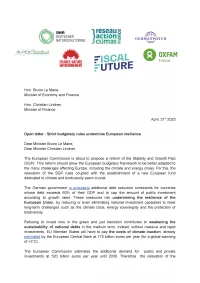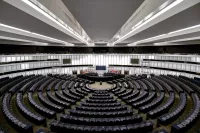Climate-neutral steel

Steering the steel industry towards a climate-neutral future is a major challenge. However, it is also a great opportunity: steel sector is responsible for approximately 30% of industrial greenhouse gas emissions in Germany – and, by extension, for 7% of national emissions. This means that a climate-neutral steel industry will allow us to take a major step closer to meeting the German and international climate targets. This policy paper highlights how we can get there and which technologies will play a key role.




